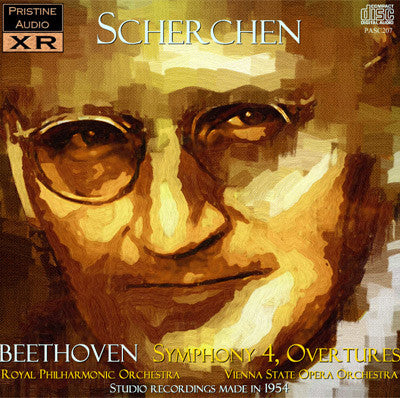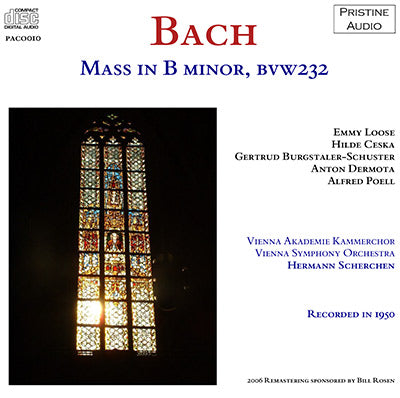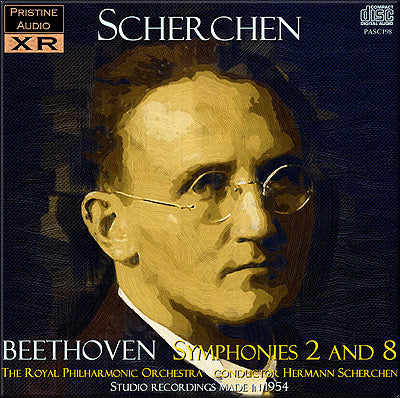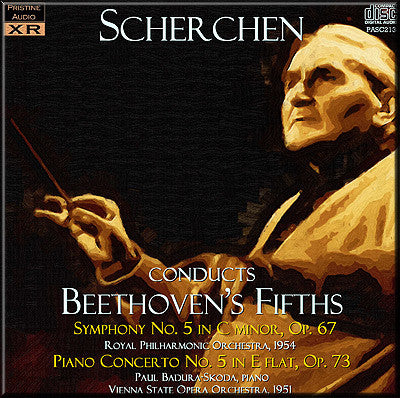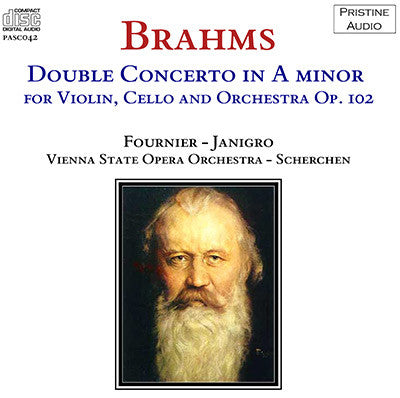Hermann Scherchen
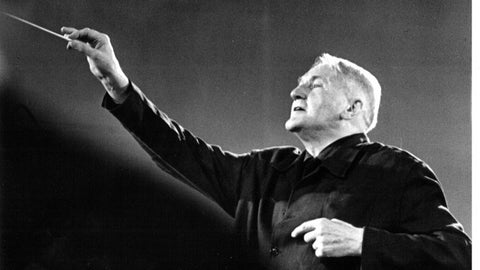
Hermann Scherchen (21 June 1891 – 12 June 1966) was a German conductor.
Scherchen was born in Berlin. Originally a violist, he played among the violas of the Bluthner Orchestra of Berlin while still in his teens. He conducted in Riga from 1914 to 1916 and in Königsberg from 1928 to 1933, after which he left Germany in protest at the Nazi regime and worked in Switzerland. Along with the philanthropist Werner Reinhart, Scherchen played a leading role in shaping the musical life of Winterthur for many years, with numerous premiere performances, the emphasis being placed on contemporary music. From 1922 to 1950 he was the principal conductor of the city orchestra Winterthur (today known as Orchester Musikkollegium Winterthur).
Making his debut with Schoenberg's Pierrot Lunaire, he was a champion of 20th-century composers such as Richard Strauss, Anton Webern, Alban Berg and Edgard Varèse, and actively promoted the work of younger contemporary composers including Iannis Xenakis, Luigi Nono and Leon Schidlowsky.
He was the teacher of Karel Ančerl, Egisto Macchi, Marc Bélanger, Françoys Bernier, Frieda Belinfante and Karl Amadeus Hartmann, and contributed to the libretto of Hartmann's opera Simplicius Simplicissimus. He also premiered Hartmann's early work Miserae. Conductor Francis Travis was a pupil, then conducting assistant, for five years.
He is probably best known for his orchestral arrangement (and recording) of Bach's The Art of Fugue. His 1953 "Lehrbuch des Dirigierens" (Treatise on Conducting, ISBN 3-7957-2780-4) is a standard textbook. His recorded repertoire was extremely wide, ranging from Vivaldi to Reinhold Glière.
Like Vasily Safonov and (in later life) Leopold Stokowski, Scherchen commonly avoided the use of a baton. His technique when in this mode sometimes caused problems for players; an unidentified BBC Symphony Orchestra bassoonist told the singer Ian Wallace that interpreting Scherchen's minuscule hand movements was like trying to milk a flying gnat. According to Fritz Spiegl, Scherchen worked largely through verbal instructions to his players and his scores were peppered with reminders of what he needed to say at each critical point in the music.
However, Scherchen did not always dispense with the baton. The film of his rehearsal of his edition of Bach's The Art of Fugue with the CBC Toronto Chamber Orchestra shows him using a baton throughout, and very effectively.

Hermann Scherchen
Hermann Scherchen (21 June 1891 – 12 June 1966) was a German conductor.
Scherchen was born in Berlin. Originally a violist, he played among the violas of the Bluthner Orchestra of Berlin while still in his teens. He conducted in Riga from 1914 to 1916 and in Königsberg from 1928 to 1933, after which he left Germany in protest at the Nazi regime and worked in Switzerland. Along with the philanthropist Werner Reinhart, Scherchen played...
BEETHOVEN Symphony No. 4
BEETHOVEN Six Overtures
Recorded 1954
Total duration: 71:48
Royal Philharmonic Orchestra
Vienna State Opera Orchestra
conducted by Hermann Scherchen
Recorded in 1950
Duration: 2hr 04:40
Hilde Ceska (soprano)
Gertrud Burgstaler-Schuster (contralto)
Anton Dermota (tenor)
Alfred Poell (bass)
Vienna Akademie Kammerchor
Vienna Symphony Orchestra
conductor: Hermann Scherchen
BEETHOVEN Symphony No. 2
BEETHOVEN Symphony No. 8
Recorded in 1954
Total duration: 52:32
Royal Philharmonic Orchestra
conducted by Hermann Scherchen
BEETHOVEN Symphony No. 5
BEETHOVEN Piano Concerto No. 5 'Emperor'
Recorded 1954 & 1951
Total duration: 70:37
Paul Badura-Skoda, piano
Royal Philharmonic Orchestra
Vienna State Opera Orchestra
conductor Hermann Scherchen
BRAHMS Double Concerto
Recorded in 1951
Duration: 32:06
Jean Fournier, violin
Antonio Janigro, cello
Vienna State Opera Orchestra
Conductor: Hermann Scherchen

